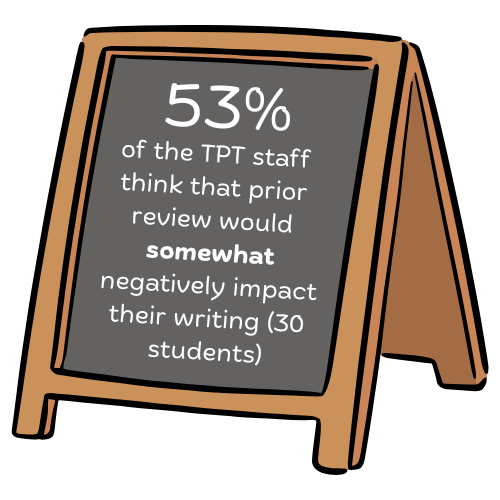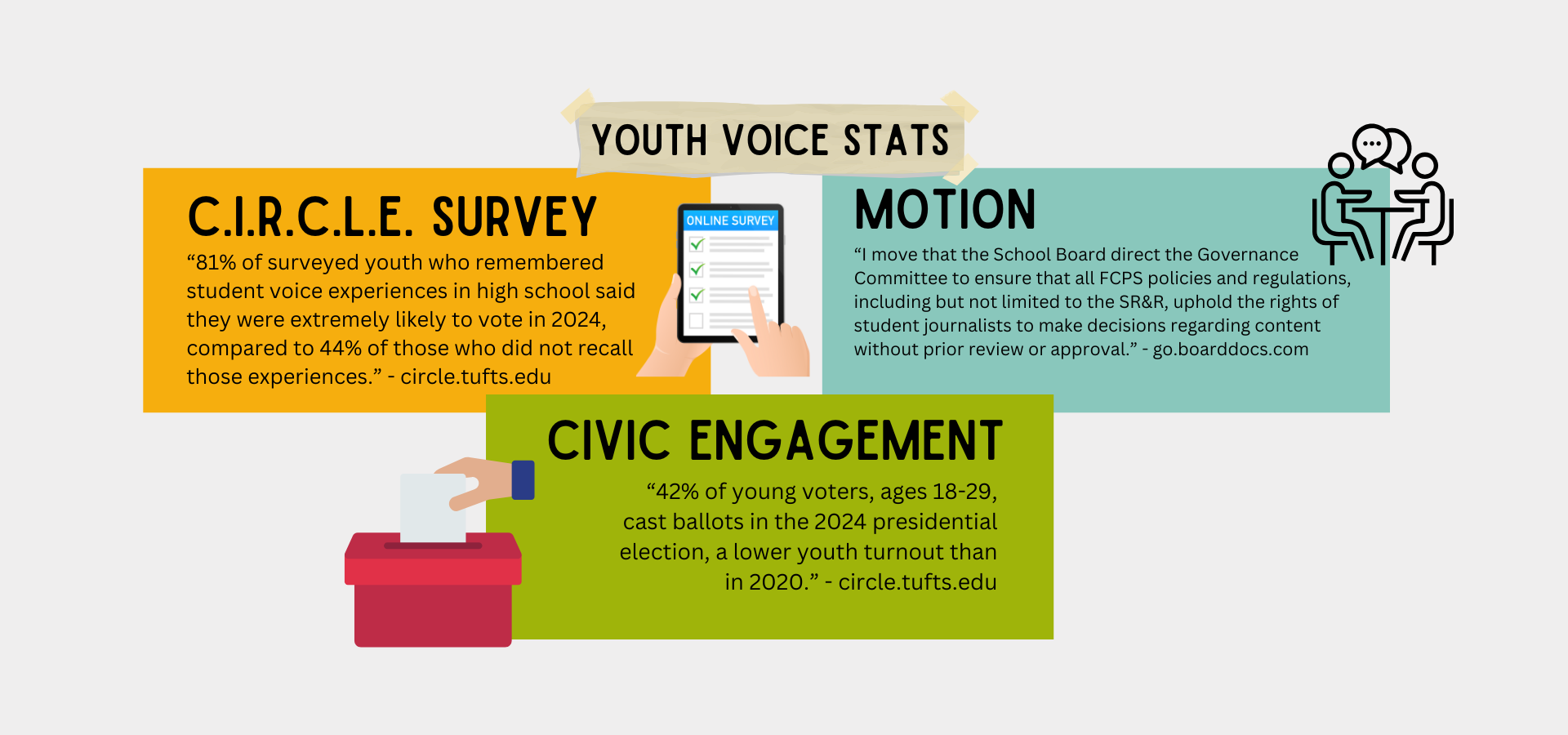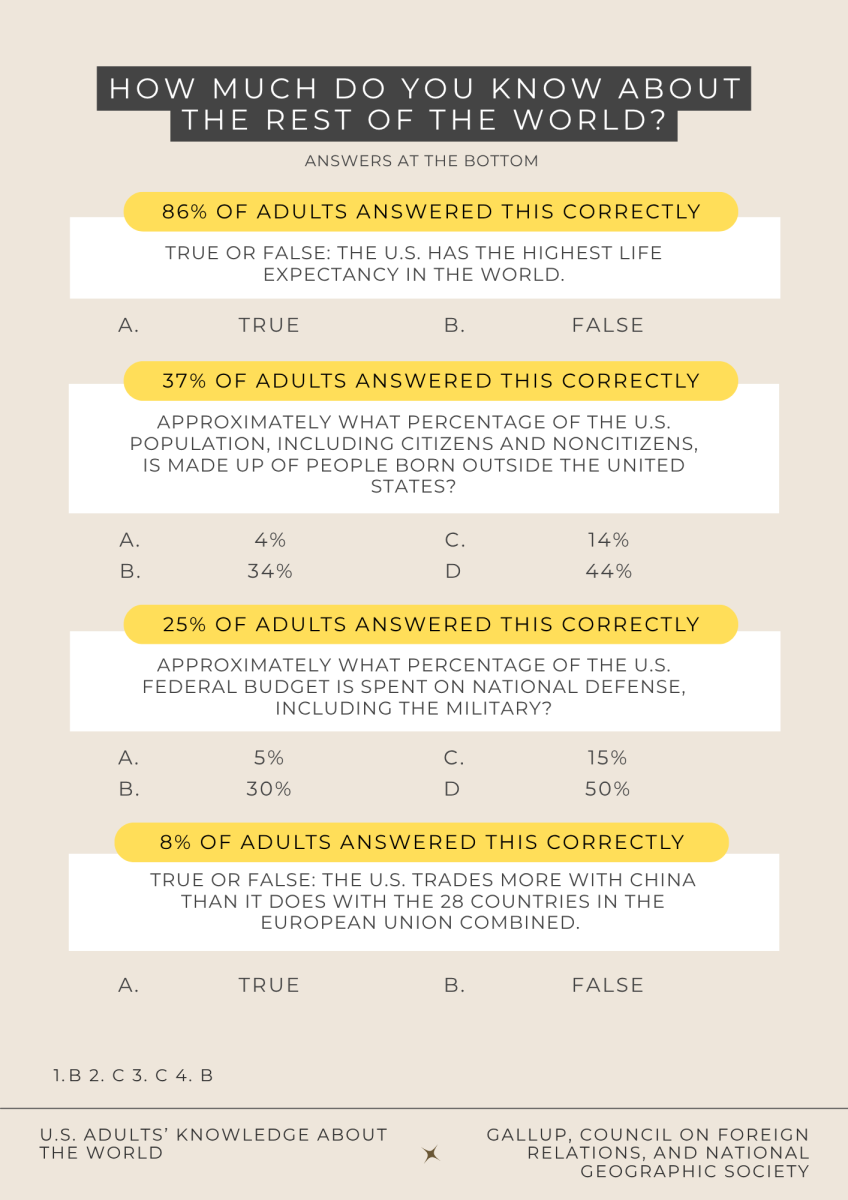Eighty-one percent of youth who remembered experiences in which students felt their opinions mattered were extremely likely to vote in the 2024 election per the Center for Information & Research on Civic Learning and Engagement. Yet only 42% of young voters (18-29) cast their ballot last November.
The FCPS school board was handed an easy chance to protect a critical avenue of student voice, student journalism, and encourage future civic engagement via a motion introduced by member Ryan McElveen to review the rights of their school publications. However, even in light of reports of FCPS censoring Hayfield student journalists’ work a few weeks prior, the vote was 9-3, a resounding denial.
Members of the board didn’t hold back in criticizing the motion. Franconia District School Board Representative Marcia St. John-Cunning said it needed to be refined. Braddock District Representative Rachna Sizemore Heiser went so far as to say its wording was “dangerous,” perhaps alluding to the motion’s aim at eliminating prior review in student publications. 
Prior review is the practice of school administrators demanding to read journalistic content before publishing or distributing. At first glance, it doesn’t really seem like the boogeyman that people make it out to be. After all, nobody wants our school publications to be a haven for unregulated high schoolers to write whatever they please. But it neglects the fact that students already go through their advisers (as required by FCPS) who can offer advice on ideas and discuss the content of articles. Publications can be student-run without being unregulated.
In schools that practice prior review, the fact that an administrator will see their story before it’s published looms over students and can cause them to self-censor to ensure their article is approved. This defeats the purpose of student journalism as a student voice and instead gives the power back to the administrators to control the narrative.
FCPS’ current student publication policy requires principals and advisers to work together and make the editorial policy, with no explicit mention of prior review. Because of this vague wording, schools choose how they want to interpret the policy, leading some to practice prior review.
Hunter Mill District Representative Melanie Meren suggested further discussion of the motion in the March 11 Student Rights & Responsibilities workshop. Hopefully it will be taken more seriously this time; it’s up to the school board to do their research and come into the meeting with an open mind. Youth voting was down from 2020 this year (that’s pretty “dangerous”) and if we further limit the voices of young people, we’re further limiting their contributions to society.







